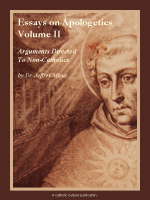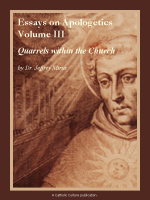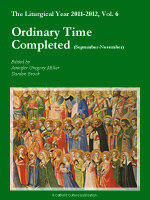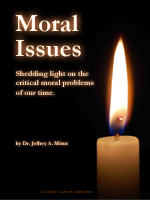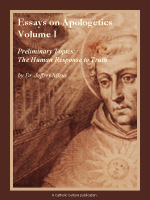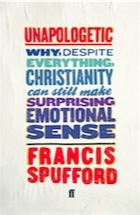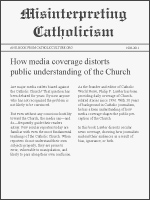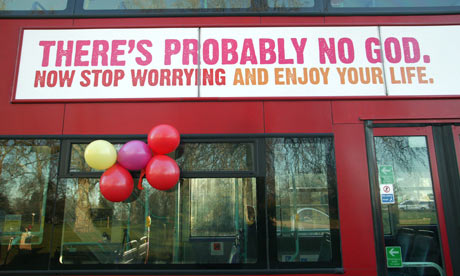
'There's something truly devoted about the way that Dawkinsites manage to
extract a stimulating hobby from the thought of other people's belief.' Photograph: Frank Baron
My daughter has just turned six. Some time over the next year or so, she will discover that her parents are weird. We're weird because we go to church.
This means as she gets older there'll be voices telling her what it means, getting louder and louder until by the time she's a teenager they'll be shouting right in her ear. It means that we believe in a load of bronze-age absurdities. That we fetishise pain and suffering. That we advocate wishy-washy niceness. That we're too stupid to understand the irrationality of our creeds. That we build absurdly complex intellectual structures on the marshmallow foundations of a fantasy. That we're savagely judgmental. That we'd free murderers to kill again. That we're infantile and can't do without an illusory daddy in the sky. That we destroy the spontaneity and hopefulness of children by implanting a sick mythology in young minds. That we teach people to hate their own natural selves. That we want people to be afraid. That we want people to be ashamed. That we have an imaginary friend, that we believe in a sky pixie; that we prostrate ourseves before a god who has the reality-status of Santa Claus. That we prefer scripture to novels, preaching to storytelling, certainty to doubt, faith to reason, censorship to debate, silence to eloquence, death to life.
But hey, that's not the bad news. Those are the objections of people who care enough about religion to object to it. Or to rent a set of recreational objections from Richard Dawkins or Christopher Hitchens. As accusations, they may be a hodge-podge, but at least they assume there's a thing called religion which looms with enough definition and significance to be detested. In fact there's something truly devoted about the way that Dawkinsites manage to extract a stimulating hobby from the thought of other people's belief. Some of them even contrive to feel oppressed by the Church of England, which is not easy to do. It must take a deft delicacy at operating on a tiny scale, like fitting a whole model railway layout into an attaché case.
No: the really painful message our daughter will receive is that we're embarrassing. For most people who aren't New Atheists, or old atheists, and have no passion invested in the subject, either negative or positive, believers aren't weird because we're wicked. We're weird because we're inexplicable; because, when there's no necessity for it that anyone sensible can see, we've committed ourselves to a set of awkward and absurd attitudes that obtrude, that stick out against the background of modern life, and not in some important or respectworthy or principled way, either. Believers are people who try to insert Jee-zus into conversations at parties; who put themselves down, with writhings of unease, for perfectly normal human behaviour; who are constantly trying to create a solemn hush that invites a fart, a hiccup, a bit of subversion. Believers are people who, on the rare occasions when you have to listen to them, like at a funeral or a wedding, seize the opportunity to pour the liquidised content of a primary-school nativity play into your earhole, apparently not noticing that childhood is over. And as well as being childish, and abject, and solemn, and awkward, we voluntarily associate ourselves with an old-fashioned, mildewed orthodoxy, an Authority with all its authority gone. Nothing is so sad – sad from the style point of view – as the mainstream taste of the day before yesterday.
What goes on inside believers is mysterious. So far as it can be guessed at it appears to be a kind of anxious pretending, a kind of continual, nervous resistance to reality. We don't seem to get it that the magic in Harry Potter, the rings and swords and elves in fantasy novels, the power-ups in video games, the ghouls and ghosts of Halloween, are all, like, just for fun. We try to take them seriously; or rather, we take our own particular subsection of them seriously. We commit the bizarre category error of claiming that our goblins, ghouls, Flying Spaghetti Monsters are really there, off the page and away from the CGI rendering programs. Star Trek fans and vampire wanabes have nothing on us. We actually get down and worship. We get down on our actual knees, bowing and scraping in front of the empty space where we insist our Spaghetti Monster can be found. No wonder that we work so hard to fend off common sense. Our fingers must be in our ears all the time – la la la, I can't hear you – just to keep out the sound of the real world.
The funny thing is that, to me, it's belief that involves the most uncompromising attention to the nature of things of which you are capable. Belief demands that you dispense with illusion after illusion, while contemporary common sense requires continual, fluffy pretending – pretending that might as well be systematic, it's so thoroughly incentivised by our culture. Take the well-known slogan on the atheist bus in London. I know, I know, that's an utterance by the hardcore hobbyists of unbelief, but in this particular case they're pretty much stating the ordinary wisdom of everyday disbelief. The atheist bus says: "There's probably no God. So stop worrying and enjoy your life." All right: which word here is the questionable one, the aggressive one, the one that parts company with recognisable human experience so fast it doesn't even have time to wave goodbye? It isn't "probably". New Atheists aren't claiming anything outrageous when they say that there probably isn't a God. In fact they aren't claiming anything substantial at all, because, really, how would they know? It's as much of a guess for them as it is for me. No, the word that offends against realism here is "enjoy". I'm sorry – enjoy your life? I'm not making some kind of neo-puritan objection to enjoyment. Enjoyment is lovely. Enjoyment is great. The more enjoyment the better. But enjoyment is one emotion. To say that life is to be enjoyed (just enjoyed) is like saying that mountains should only have summits, or that all colours should be purple, or that all plays should be by Shakespeare. This really is a bizarre category error.
But not necessarily an innocent one. Not necessarily a piece of fluffy pretending that does no harm. The implication of the bus slogan is that enjoyment would be your natural state if you weren't being "worried" by us believers and our hellfire preaching. Take away the malignant threat of God-talk, and you would revert to continuous pleasure, under cloudless skies. What's so wrong with this, apart from it being total bollocks? Well, in the first place, that it buys a bill of goods, sight unseen, from modern marketing. Given that human life isn't and can't be made up of enjoyment, it is in effect accepting a picture of human life in which those pieces of living where easy enjoyment is more likely become the only pieces that are visible. If you based your knowledge of the human species exclusively on adverts, you'd think that the normal condition of humanity was to be a good-looking single person between 20 and 35, with excellent muscle-definition and/or an excellent figure, and a large disposable income. And you'd think the same thing if you got your information exclusively from the atheist bus, with the minor difference, in this case, that the man from the Gold Blend couple has a tiny wrinkle of concern on his handsome forehead, caused by the troublesome thought of God's possible existence: a wrinkle about to be removed by one magic application of Reason™.
These plastic beings don't need anything that they can't get by going shopping. But suppose, as the atheist bus goes by, you are povertystricken, or desperate for a job, or a drug addict, or social services have just taken away your child. The bus tells you that there's probably no God so you should stop worrying and enjoy your life, and now the slogan is not just bitterly inappropriate in mood. What it means, if it's true, is that anyone who isn't enjoying themselves is entirely on their own. What the bus says is: there's no help coming. Now don't get me wrong. I don't think there's any help coming, in one large and important sense of the term. I don't believe anything is going to happen that will materially alter the position these people find themselves in. But let's be clear about the emotional logic of the bus's message. It amounts to a denial of hope or consolation on any but the most chirpy, squeaky, bubble-gummy reading of the human situation. St Augustine called this kind of thing "cruel optimism" 1,500 years ago, and it's still cruel.
A consolation you could believe in would be one that wasn't in danger of popping like a soap bubble on contact with the ordinary truths about us. A consolation you could trust would be one that acknowledged the difficult stuff rather than being in flight from it, and then found you grounds for hope in spite of it, or even because of it, with your fingers firmly out of your ears, and all the sounds of the complicated world rushing in, undenied.
I remember a morning about 15 years ago. It was a particularly bad morning, after a particularly bad night. We – my wife and I – had been caught in one of those cyclical rows that reignite every time you think they've come to an exhausted close, because the thing that's wrong won't be left alone, won't stay out of sight if you try to turn away from it. Over and over, between midnight and six, when we finally gave up and got up, we'd helplessly looped from tears, and the aftermath of tears, back into scratch-your-eyes-out, scratch-each-other's-skin-off quarrelling. Intimacy had turned toxic: we knew, as we went around and around it, almost exactly what the other one was going to say, and even what they were going to think, and it only made things worse. It felt as if we were reduced – but truthfully reduced, reduced in accordance with the truth of the situation – to a pair of intermeshing routines, cogs with sharp teeth turning each other. We got up, and she went to work. I went to a café and nursed my misery along with a cappuccino. I could not see any way out of sorrow that did not involve some obvious self-deception, some wishful lie about where we'd got to. And then the person serving in the café put on a cassette: Mozart's Clarinet Concerto, the middle movement, the adagio.
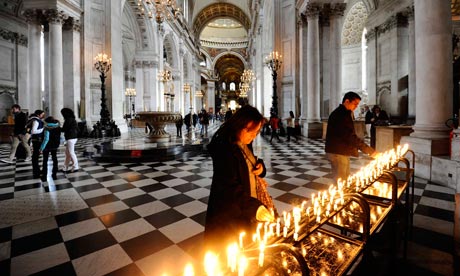 Photograph: Paul Hackett/Reuters
Photograph: Paul Hackett/Reuters
If you don't know it, it is a very patient piece of music. It too goes round and round, in its way, essentially playing the same tune again and again, on the clarinet alone and then with the orchestra, clarinet and then orchestra, lifting up the same unhurried lilt of solitary sound, and then backing it with a kind of messageless tenderness in deep waves, when the strings join in. It is not strained in any way. It does not sound as if the music is struggling to lift a weight it can only just manage. Yet at the same time, it is not music that denies anything. It offers a strong, absolutely calm rejoicing, but it does not pretend there is no sorrow. On the contrary, it sounds as if it comes from a world where sorrow is perfectly ordinary, but still there is more to be said.
I had heard it lots of times, but this time it felt to me like news. It said: everything you fear is true. And yet. And yet. Everything you have done wrong, you have really done wrong. And yet. And yet. The world is wider than you fear it is, wider than the repeating rigmaroles in your mind, and it has this in it, as truly as it contains your unhappiness. Shut up and listen, and let yourself count, just a little bit, on a calm that you do not have to be able to make for yourself, because here it is, freely offered. There is more going on here than what you deserve, or don't deserve. There is this as well. And it played the tune again, with all the cares in the world.
The novelist Richard Powers has written that the Clarinet Concerto sounds the way mercy would sound, and that's exactly how I experienced it in 1997. Mercy, though, is one of those words that now requires definition. It does not only mean some tyrant's capacity to suspend a punishment he has himself inflicted. It can mean – and does mean in this case – getting something kind instead of the sensible consequences of an action, or as well as the sensible consequences of an action. Mercy is …
But by now I would imagine that some of you reading this are feeling some indignation building up. Wait a minute, wait a minute, you say; never mind how you're defining mercy. What about the way you're defining religion? That's religion, listening to some Mozart in a café? You were experiencing what we in the world of unbelief like to call "an emotion", an emotion induced by a form of artistic expression which, to say the least, is quite well known for inducing emotions. You were not receiving a signal from God, or whatever it is you were about to claim; you were getting, if anything, a signal from Mr Mozart, that dead Austrian in a wig. I hope that isn't your basis for religious faith, you say, because you've described nothing there that isn't compatible with a completely naturalistic account of the universe, in which there's nobody there to extend any magical mercy from the sky, just stuff, lots and lots of astonishing, sufficiently interesting stuff, all the way up from the quantum scale to the movement of galaxies.
Well, yes. By the same token, what I've described is also completely compatible with a non-naturalistic account of the universe – but that's not really the point, is it? The point is that from outside, belief looks like a series of ideas about the nature of the universe for which a truth-claim is being made, a set of propositions that you sign up to; and when actual believers don't talk about their belief in this way, it looks like slipperiness, like a maddening evasion of the issue. If I say that, from inside, it makes much more sense to talk about belief as a characteristic set of feelings, or even as a habit, you will conclude that I am trying to wriggle out, or just possibly that I am not even interested in whether the crap I talk is true. I do, as a matter of fact, think that it is. I am a fairly orthodox Christian. Every Sunday I say and do my best to mean the whole of the Creed, which is a series of propositions. But it is still a mistake to suppose that it is assent to the propositions that makes you a believer. It is the feelings that are primary. I assent to the ideas because I have the feelings; I don't have the feelings because I've assented to the ideas.
So to me, what I felt listening to Mozart in 1997 is not some wishy-washy metaphor for an idea I believe in, and it's not a front behind which the real business of belief is going on: it's the thing itself. My belief is made of, built up from, sustained by, emotions like that. That's what makes it real. I do, of course, also have an interpretation of what happened to me in the café which is just as much a scaffolding of ideas as any theologian or Richard Dawkins could desire. I think – note the verb "think" – that I was not being targeted with a timely rendition of the Clarinet Concerto by a deity who micro-manages the cosmos and causes all the events in it to happen (which would make said deity an immoral scumbag, considering the nature of many of those events). I think that Mozart, two centuries earlier, had succeeded in creating a beautiful and accurate report of an aspect of reality. I think that the reason reality is that way – that it is in some ultimate sense merciful as well as being a set of physical processes all running along on their own without hope of appeal, all the way up from quantum mechanics to the relative velocity of galaxies by way of "blundering, low and horridly cruel" biology (Darwin) – is that the universe is sustained by a continual and infinitely patient act of love. I think that love keeps it in being. I think that I don't have to posit some corny interventionist prod from a meddling sky-fairy to account for my merciful ability to notice things a little better, when God is continually present everywhere anyway, undemonstratively underlying all cafés, all cassettes, all composers.
That's what I think. But it's all secondary. It all comes limping along behind my emotional assurance that there was mercy, and I felt it. And so the argument about whether the ideas are true or not, which is the argument that people mostly expect to have about religion, is also secondary for me. No, I can't prove it. I don't know that any of it is true. I don't know if there's a God. (And neither do you, and neither does Professor Dawkins, and neither does anybody. It isn't the kind of thing you can know. It isn't a knowable item.) But then, like every human being, I am not in the habit of entertaining only those emotions I can prove. I'd be an unrecognisable oddity if I did. Emotions can certainly be misleading: they can fool you into believing stuff that is definitely, demonstrably untrue. Yet emotions are also our indispensable tool for navigating, for feeling our way through, the much larger domain of stuff that isn't susceptible to proof or disproof, that isn't checkable against the physical universe. We dream, hope, wonder, sorrow, rage, grieve, delight, surmise, joke, detest; we form such unprovable conjectures as novels or clarinet concertos; we imagine. And religion is just a part of that, in one sense. It's just one form of imagining, absolutely functional, absolutely human-normal. It would seem perverse, on the face of it, to propose that this one particular manifestation of imagining should be treated as outrageous, should be excised if (which is doubtful) we can manage it.
But then, this is where the perception that religion is weird comes in. It's got itself established in our culture, relatively recently, that the emotions involved in religious belief must be different from the ones involved in all the other kinds of continuous imagining, hoping, dreaming, and so on, that humans do. These emotions must be alien, freakish, sad, embarrassing, humiliating, immature, pathetic. These emotions must be quite separate from commonsensical us. But they aren't. The emotions that sustain religious belief are all, in fact, deeply ordinary and deeply recognisable to anybody who has ever made their way across the common ground of human experience as an adult.
It's just that the emotions in question are rarely talked about apart from their rationalisation into ideas. This is what I have tried to do in my new book, Unapologetic. Ladies and gentlemen! A spectacle never before attempted on any stage! Before your very eyes, I shall build up from first principles the simple and unsurprising structure of faith. Nothing up my left sleeve, nothing up my right sleeve, except the entire material of everyday experience. No tricks, no traps, ladies and gentlemen; no misdirection and no cheap rhetoric. You can easily look up what Christians believe in. You can read any number of defences of Christian ideas. This, however, is a defence of Christian emotions – of their intelligibility, of their grown-up dignity. The book is called Unapologetic because it isn't giving an "apologia", the technical term for a defence of the ideas.
And also because I'm not sorry.
